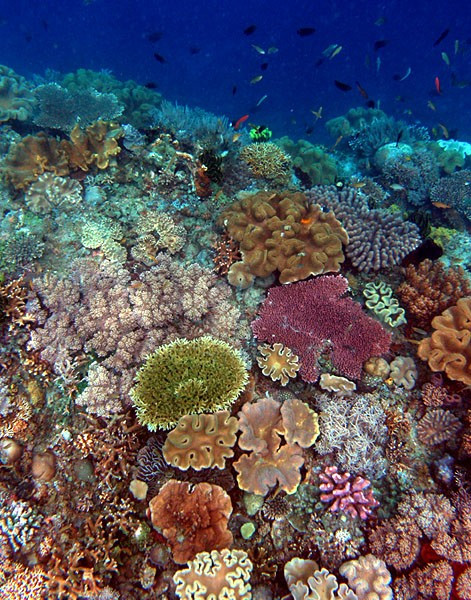Acid Oceans to Hurt World Economies by End of Century

Scientists have said ocean acidification will lead to "significant" economic losses before the end of the century, with acidification increasing by as much as 170% in this time.
Presenting research at the Third Symposium on the Ocean in a High CO2 World, the largest gathering of ocean acidification experts ever convened, scientists said people in developing countries will be especially vulnerable to the changes.
Experts said they have concluded that marine ecosystems and biodiversity will likely change as a result of ocean acidification, a process where carbon dioxide is dissolved into the Earth's oceans and rivers.
They said there will be far-reaching consequences for society because of coral reef loss and declines in shellfisheries. Molluscs and corals are particularly sensitive to ocean acidification so industries involving them will suffer economic losses, experts said.
Ulf Riebesell from Helmholtz Centre for Ocean Research said: "What we can now say with high levels of confidence about ocean acidification sends a clear message. Globally we have to be prepared for significant economic and ecosystem service losses.
"But we also know that reducing the rate of carbon dioxide emissions will slow acidification. That has to be the major message for the COP19 meeting [on climate change]."

Researchers explained they are very confident of several key facts: ocean acidification is caused by man-made carbon emissions; the ocean is becoming less effective as acting as a "carbon sink"; reducing emissions will slow the process; and that the effect of historic fossil fuel emissions will be felt for centuries.
They also said that if current CO2 emissions continue at the same rate, cold water coral reefs in the deep sea may also become unsuitable habitats.
Author Wendy Broadgate, deputy director at the International Geosphere-Biosphere Programme, said it is imperative that emissions are reduced if marine ecosystems are protected.
"Emissions reductions may protect some reefs and marine organisms but we know that the ocean is subject to many other stresses such as warming, deoxygenation, pollution and overfishing," she said.
"Warming and deoxygenation are also caused by rising carbon dioxide emissions, underlining the importance of reducing fossil fuel emissions.
"Reducing other stressors such as pollution and overfishing, and the introduction of large scale marine protected areas, may help build some resilience to ocean acidification."
© Copyright IBTimes 2025. All rights reserved.




















